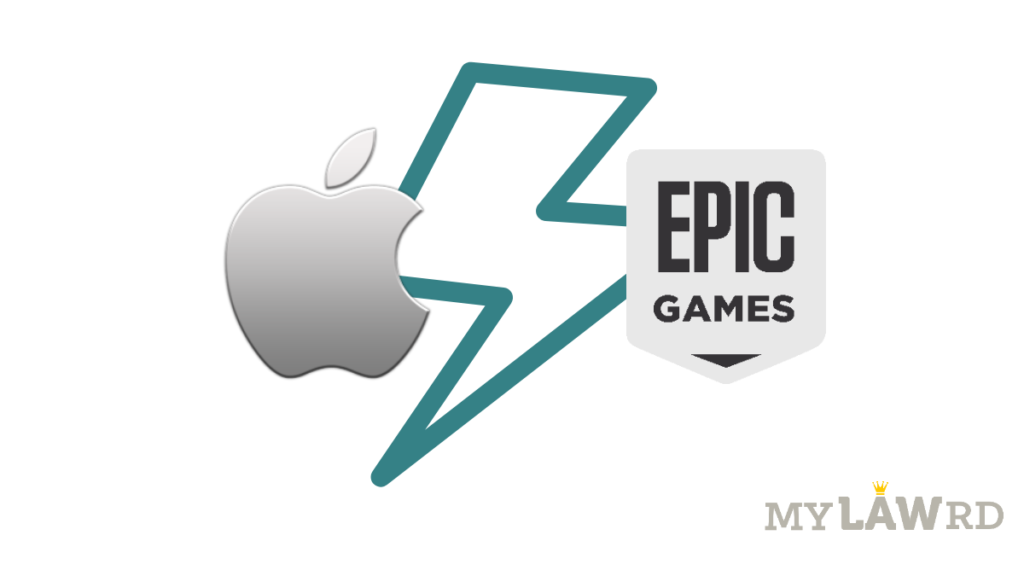The “Tims” served as a fitting tribute to the Epic vs Apple trial. Nearly a month ago, Epic Games’ CEO Tim Sweeney was called as the first witness. Apple called Tim Cook as the penultimate witness to testify yesterday, before both parties presented their final arguments before the court last week. Cook was meant to bring Apple’s ecosystem defence home. He did it by setting out Apple’s most lofty beliefs —the company’s hard financial calculations.
The Conflict
Epic vs. Apple addresses two issues: first, whether the App Store’s market for in-app purchases is unfairly monopolistic? Second, if iOS is a monopoly that should be opened up to third-party shops and side-loaded software?
Cook addressed these issues by emphasizing the importance of user security and privacy.
Privacy is one of the most significant concerns of the century from our perspective, and safety and security are the cornerstone upon which privacy is built.”
Tim Cook, Apple CEO
The App Store Policy
Supporting side-loaded apps would completely transform iOS. Cook and Apple would have an easier time laying out the possible drawbacks. Giving consumers control leads to risk, according to Cook. He claims that customers select iOS especially to avoid having to make dangerous decisions with sensitive data. He explained saying Apple is attempting to provide the consumer with an integrated solution of hardware, software, and services. Cook also finds it hard to believe that the integration could be replicated by a third party.
People can still choose to keep their phones locked down, and they may prefer to access shops with even more carefully curated apps or greater privacy settings, according to Epic. It has previously accused Apple of hypocrisy, citing anecdotal failures to discover specific apps that violate App Store criteria (such as the game Ganja Farmer: Weed Empire).
Epic claims that it isn’t 100% and not possibly flawless. When Apple’s counsel inquired about the instances, Cook replied, “You will see mistakes being made. However, in the grand scope of things, with 1.8 million or so apps on the store, we do a pretty good job.
The biggest iPhone hack?
The trial also revealed some unknown facts. It disclosed that unknown hackers had infiltrated the iPhone App Store in 2015, infecting thousands of apps with malware. Researchers estimated that the breach had the potential to infect hundreds of millions of users at the time, owing to the fact that it compromised about 4,000 apps. As a result, it was possibly the largest attack against iPhones in terms of users affected. However, the public had no idea how big the hack was for years. Some speculated that the true impact of the hack—dubbed XCodeGhost after the malware used—would never be understood.
But we finally know how many iPhone users were affected owing to emails released as part of the trial. There were 128 million people in total, with 18 million in the United States. The hackers placed the malicious code into a compromised version of Xcode, Apple’s app development tools, allowing them to infiltrate thousands of apps.
In terms of security, Apple has always had a strong reputation. However, the corporation has been hesitant to discuss particular security problems publicly. These emails, which were just made public as a result of discovery in the Epic v. Apple Fortnite trial, are a fascinating look behind the curtain that reveal the entire magnitude of the harm caused by the attack as well as details on how the company dealt with the aftermath in real time. There were are a few more revelations.
Speculating the outcome..
Judge Yvonne Gonzalez Rogers, fortunately for Apple, has shown little interest in entirely opening up iOS. She is constantly asking a regular stream of questions regarding in-app purchases, anti-steering measures, and the structure of individual apps like Roblox, but she’s rarely questioned about third-party app distribution or side loading. (One of those rare occurrences seems to be critical of Epic as well.) While Rogers’ queries don’t always signal how she’ll rule, there’s a noticeable lack of demands for more information or clarification.
However, Apple would suffer a significant setback if the 30% in-app purchase commissions were no longer obligatory. Cook defended the approach with more privacy and security claims. He claimed that allowing apps to process payments independently would be both insecure and unpleasant. However, he was a little more forthright about Apple’s own interests. In app Purchases (IAP) enables Apple to collect a commission in an effective manner for payment processing, customer service, and the use of Apple’s intellectual property, among other things.
Apple also enlisted the help of an expert to explain how its multibillion-dollar R&D spending benefits developers, notably through APIs like Metal and CoreML. Apple’s profiting from these investments isn’t inherently nefarious. Higher profit margins, unlike greater privacy and security measures, do not directly improve customer welfare, which is the key criteria in antitrust proceedings. Judge Rogers grilled Cook on whether in-app game purchases like Fortnite V-Bucks and Candy Crush gold were effectively supporting the rest of the App Store, concluding Cook’s testimony with some of her most intriguing questions yet.
Impulsive Purchasing
Rogers does not appear to enjoy video game microtransactions. She has expressed concern about possibly exploitative impulsive purchases on several occasions. Epic has pleaded for the action to administer all App Store transactions by itself, but Apple argues that it should be limited to only digital video game sales, not in-game purchases. Cook’s grilling however hints that Apple still has battles to face even if iOS remains intact and “gamers” are the sole audience in question. The verdict is expected in mid-August.
Do subscribe to our Telegram channel for more resources and discussions on technology law and news. To receive weekly updates, don’t forget to subscribe to our Newsletter.
You can also follow us on Instagram, Facebook, LinkedIn, and Twitter for frequent updates and news flashes about #technologylaw.

